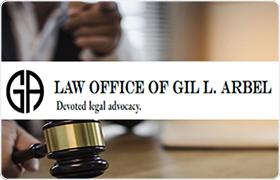Burbank Misdemeanor Lawyer, California, page 3
Sponsored Law Firm
-
 x
x

Click For More Info:
-
Law Office of Gil L. Arbel
28541 Conejo View Dr. Agoura Hills, CA 91301» view mapCriminal Defense Law Devoted Legal Advocacy
At the Law Offices of Gil L. Arbel, we understand that legal matters can be intimidating and complicated, which is why it is crucial to take an informed approach.
800-961-3980
Daniel Nathan Shallman
Other, Health Care, Misdemeanor, Criminal
Status: In Good Standing Licensed: 29 Years
Nikhil P Pole
Lawsuit & Dispute, Immigration, Child Custody, Misdemeanor
Status: In Good Standing Licensed: 14 Years
Ramin Nosrati
Traffic, Divorce & Family Law, Misdemeanor, Criminal
Status: In Good Standing Licensed: 25 Years
Peter Joseph Diedrich
Litigation, Immigration, Misdemeanor, Business
Status: In Good Standing Licensed: 43 Years
Jason Andrew Lieber
Lawsuit & Dispute, White Collar Crime, Misdemeanor, Civil Rights
Status: In Good Standing
 Gil L. Arbel Agoura Hills, CA
Gil L. Arbel Agoura Hills, CA Practice AreasExpertise
Practice AreasExpertise
